Can you use AI Chatbots for keyword surveys?
Yes, you can use AI chatbots for keyword surveys. But it is important to understand the strengths and weaknesses of technology before getting started.
In general, AI -Chatbots are good at identifying ordinary expressions found in written content because they learn from large datasets.
Chatbots are also good at understanding the keywords’ meanings and conditions thanks to their natural language treatment and machine learning algorithms.
This means that you can ask a free chatbot as a chatgpt to give keyword ideas based on a particular topic and get good results.
You can also ask AI -Chatbots to analyze search intention, the Keywords group in clusters and perform some other keyword survey tasks.
So using AI for keyword surveys can help you save time and reduce costs.
However:
Ai Chatbots don’t know what people are actually writing in search engines.
Unlike traditional keyword research tools, chatbots do not have direct access to search engines data.
This means that chatbots do not reliably tell you how popular a key word is or how difficult it is to rank for. And this can make it difficult to prioritize keywords effectively.
Therefore, many marketers use AI tools in combination with traditional keyword research tools – something I will talk about more about later.
5 Free Chatbots for AI -Key Word Research
You can use chatbots like Chatgpt, Claude, Gemini, Perplexity and Copilot as free AI keyword research tools.
Here are some quick tips for success with any of these options:
- Write clear, conversation information and include any relevant context
- Upload supplementary files when possible and relevant
- If the tool has web access, you may consider asking the tool to refer to your and your competitors’ domains to information
- Remember that AI -Chatbots can Hallucinate (give fake information)
- Refine output by providing clear follow -up information
- Experiments with different models, search settings, etc. to see what gives the best results
Below, I show you how each tool responded to AI keyword surveys tested in March 2025. To give you a sense of the tool’s capabilities.
Just remember your results will vary.
Chatgpt
I asked chatgpt to give key words ideas for a blog post about AI key word research, and Chatbot delivered 30 keywords divided into three lists:
- Primary Keywords (high influence)
- Keywords with long tail (Niche & Conversational)
- Related Keywords (Supporting Topics)
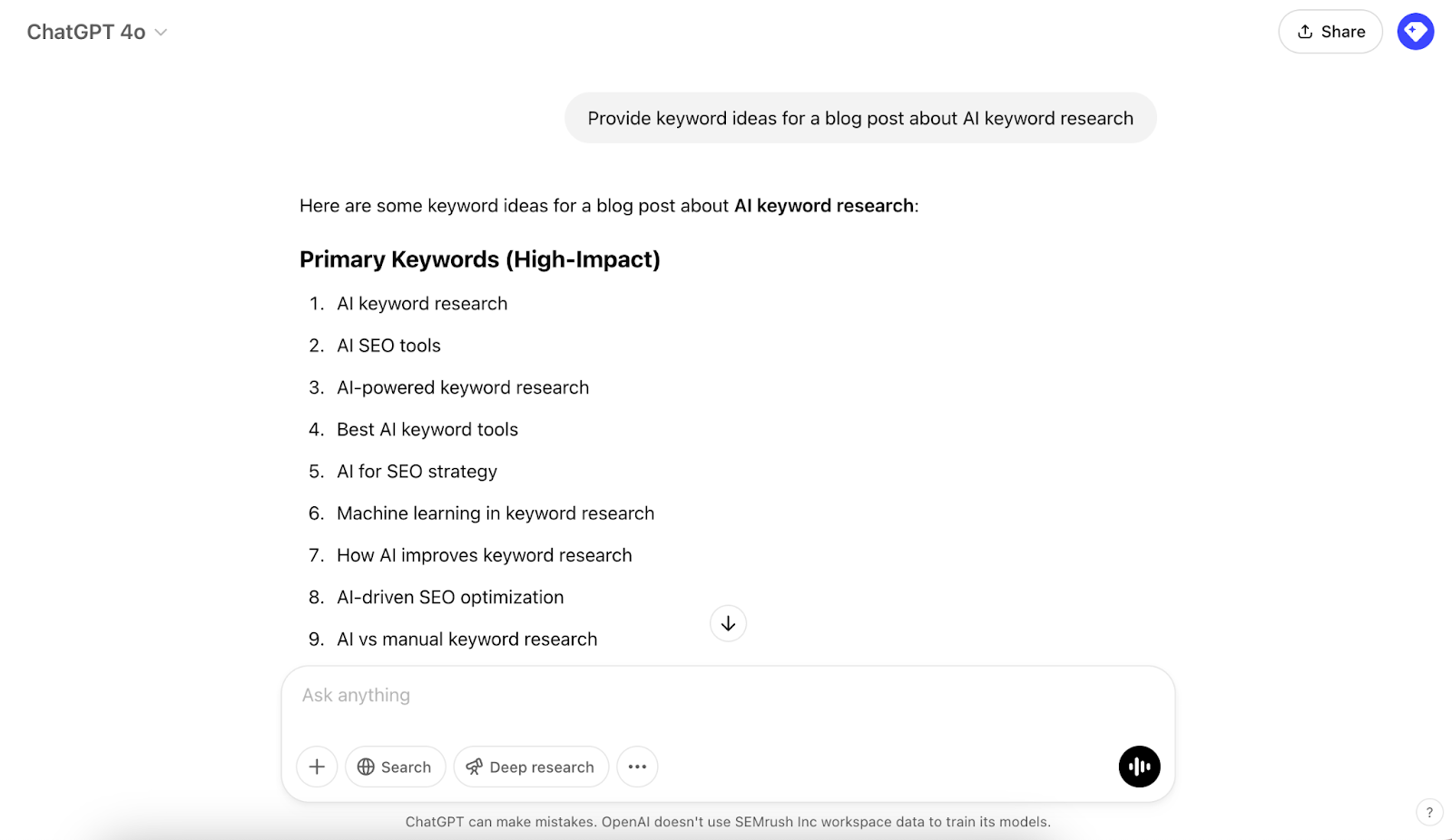
Overall, the keyword proposals were relevant and could give great inspiration to a content creator.
However, I would not recommend using more than one primary keyword per day. Post. And some of the primary keyword suggestions deviated from the main topic.
I followed up on asking chatgpt to evaluate the intention behind someone seeking “ai -key word research.”
The tool provided suggestions based on the four main types of search intention: information, navigation, transactional and commercial. So this did not really narrow down my options – I had to do further work to determine the best approach to my content.
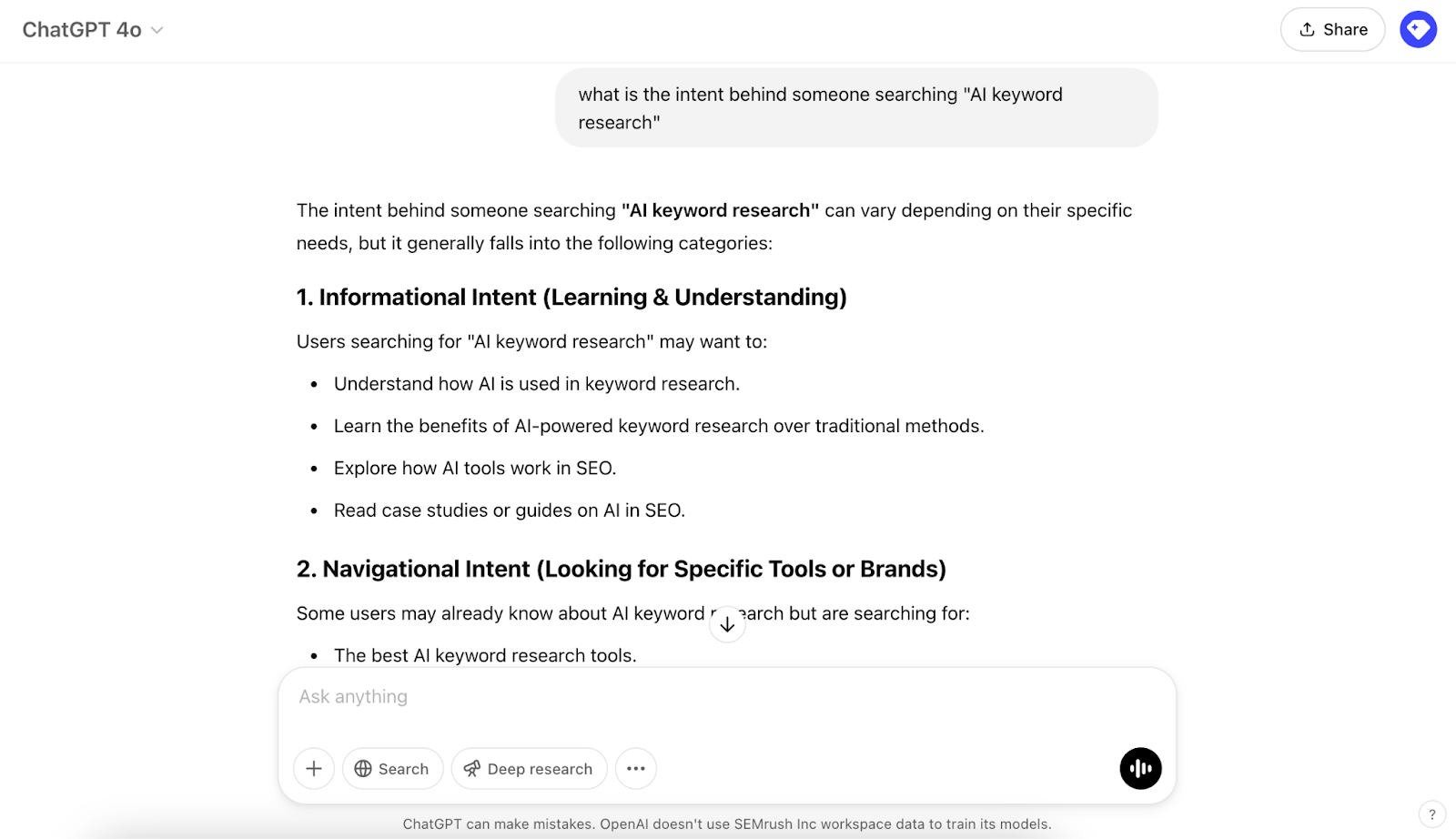
These outputs show that you need a good grip on basic keyword strategy to get the most out of AI key word research. Just as you do with traditional keyword survey.
Claude
David Bell, co-founder of Previsible SEO, recommends using Claude for AI key word research due to its reliability and high quality.
Here is a quick bell recommends for generating key words ideas for an article:
“You are an SEO analyst who wants to write a content piece around [topic]. Can you perform keyword surveys and find patterns of used words that can benefit from this piece of creation and overall performance. I’ll add a screen shot of what ranks on page 1 on Google. “
Bell also attaches a screenshot of Google Search Engine Results page (SERP) for its target key word so that Claude can gather insights from the most placed results.
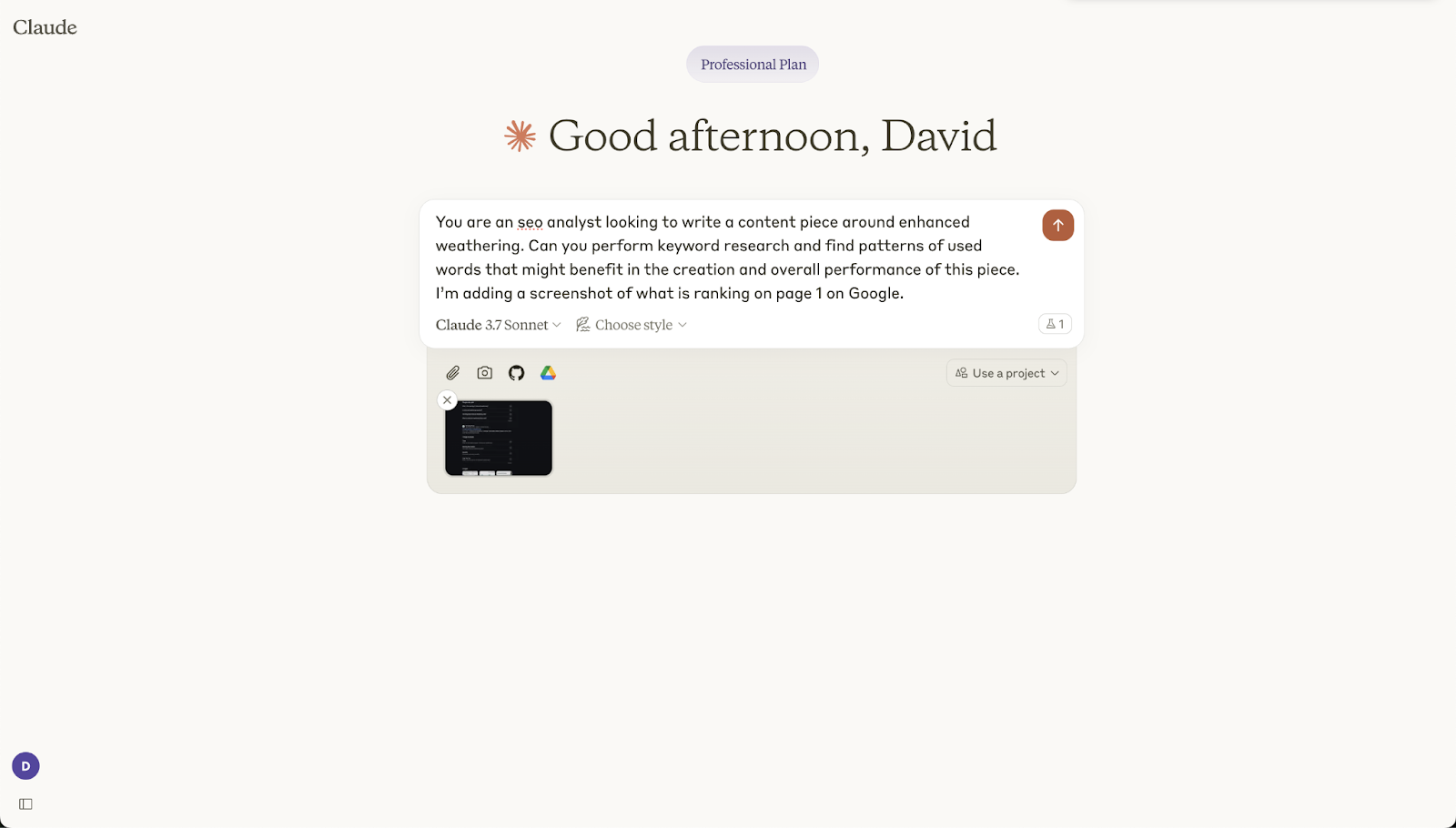
Claude provided a number of useful information including:
- A list of core terminology
- Questions people ask
- Content structure recommendations
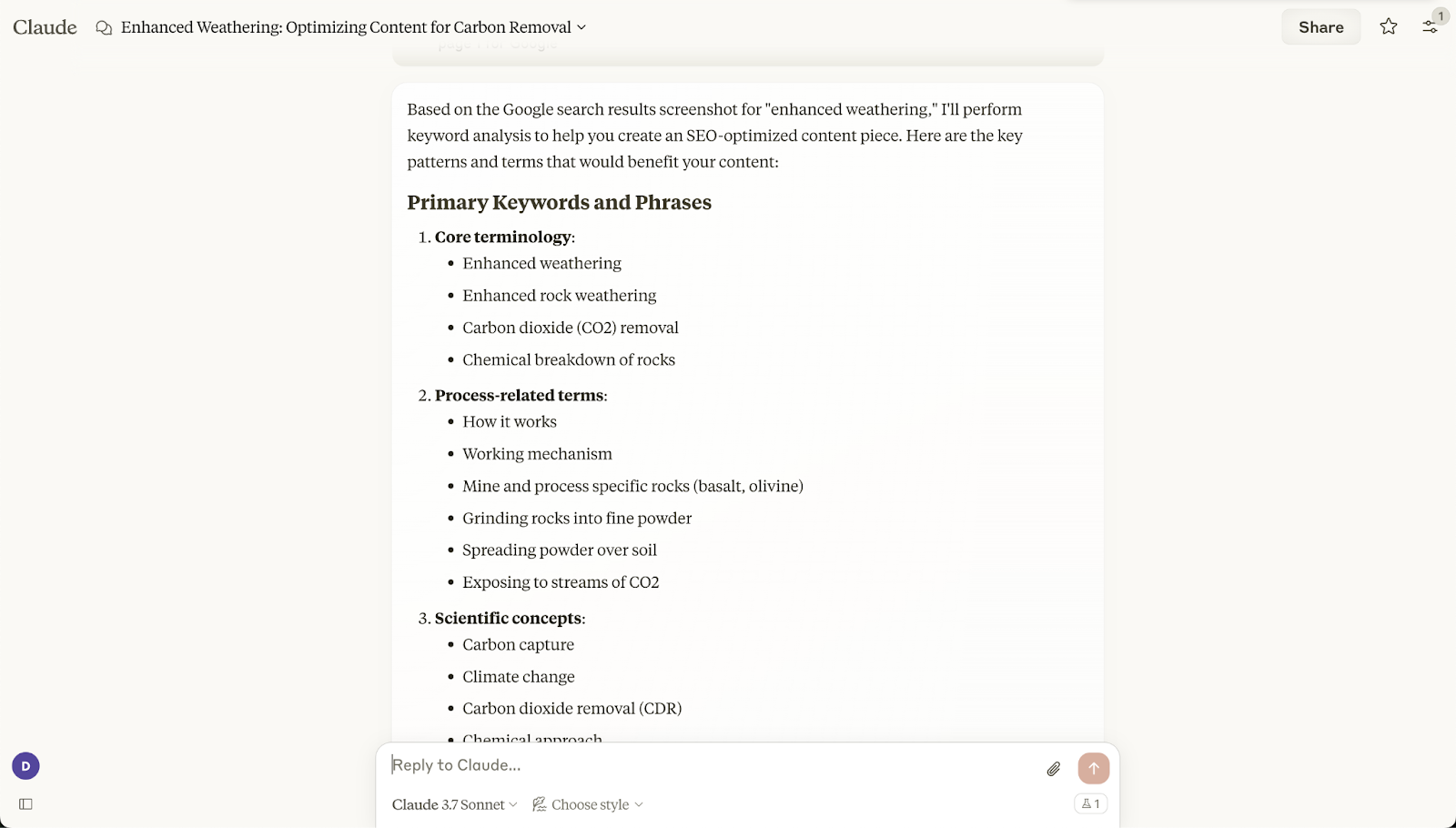
If you don’t like the first answer that Claude gives you, try hitting the “attempt” button or giving a follow -up prompt.
Gemini
I asked Google’s Gemini Chatbot to give key words ideas for a blog post about AI key word research, and Chatbot provided a large list divided into several sections:
- Core/wide keywords
- Specific AI tool/Technique Keywords
- Keywords/Result -Key Word
- “How-to” and tutorial keywords
- Comparison/Review Keywords
- Keywords with long tail
- Emerging/Trending Keywords
- Local SEO key words
- Primary keywords
- Keywords with long tail and specific use cases
- Keywords related to benefits
- Keywords related to tools
- Keywords related to the process
- General SEO & Keyword Research Terms (to attract a wider audience)
The keyword list contains many good suggestions, but can be overwhelming for beginners. I would recommend using a follow -up prompt to narrow your results.
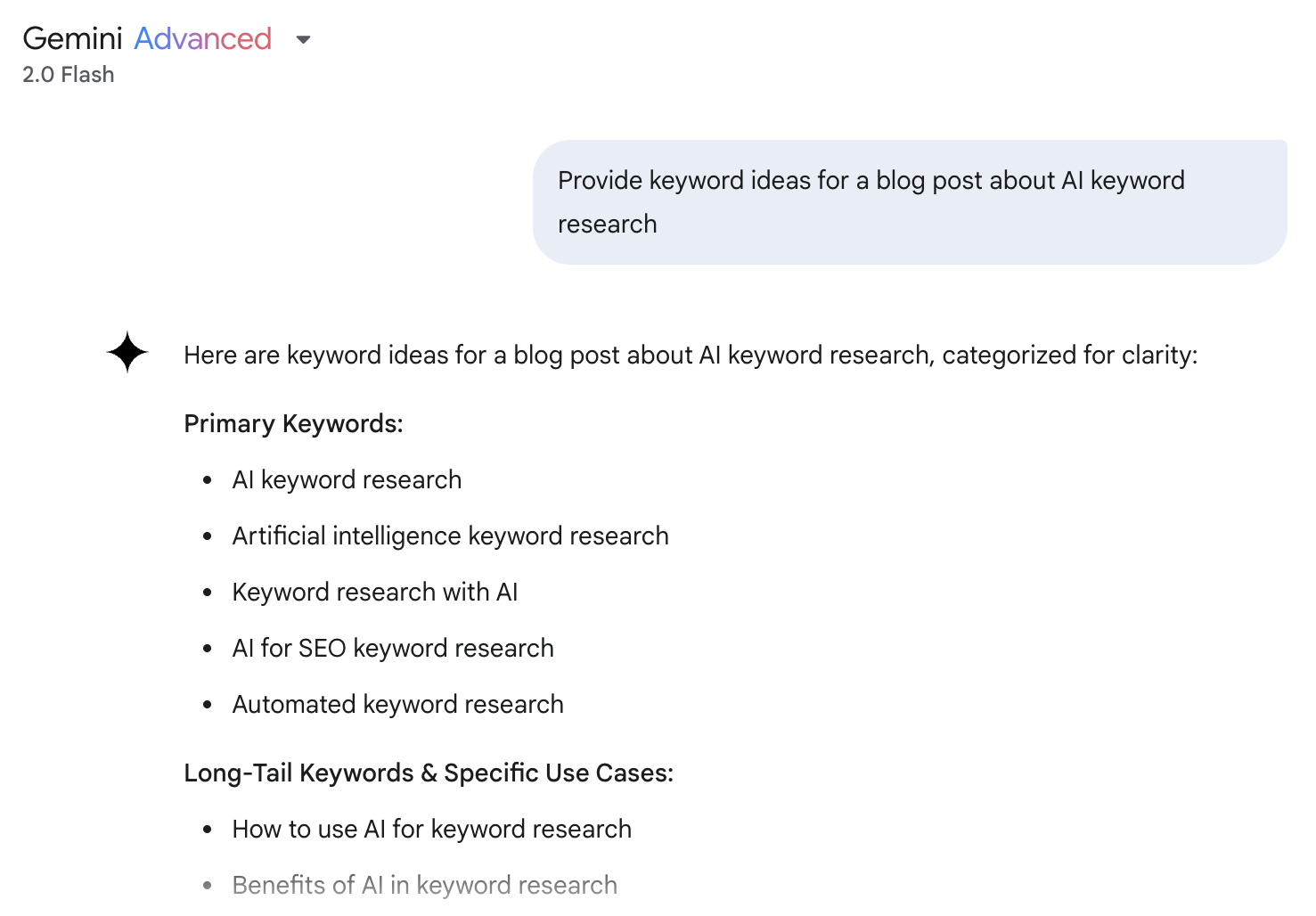
When I asked Gemini to analyze the intention behind “AI keyword surveys”, the chatbot provided a useful and focused analysis that could help me write an effective blog post.
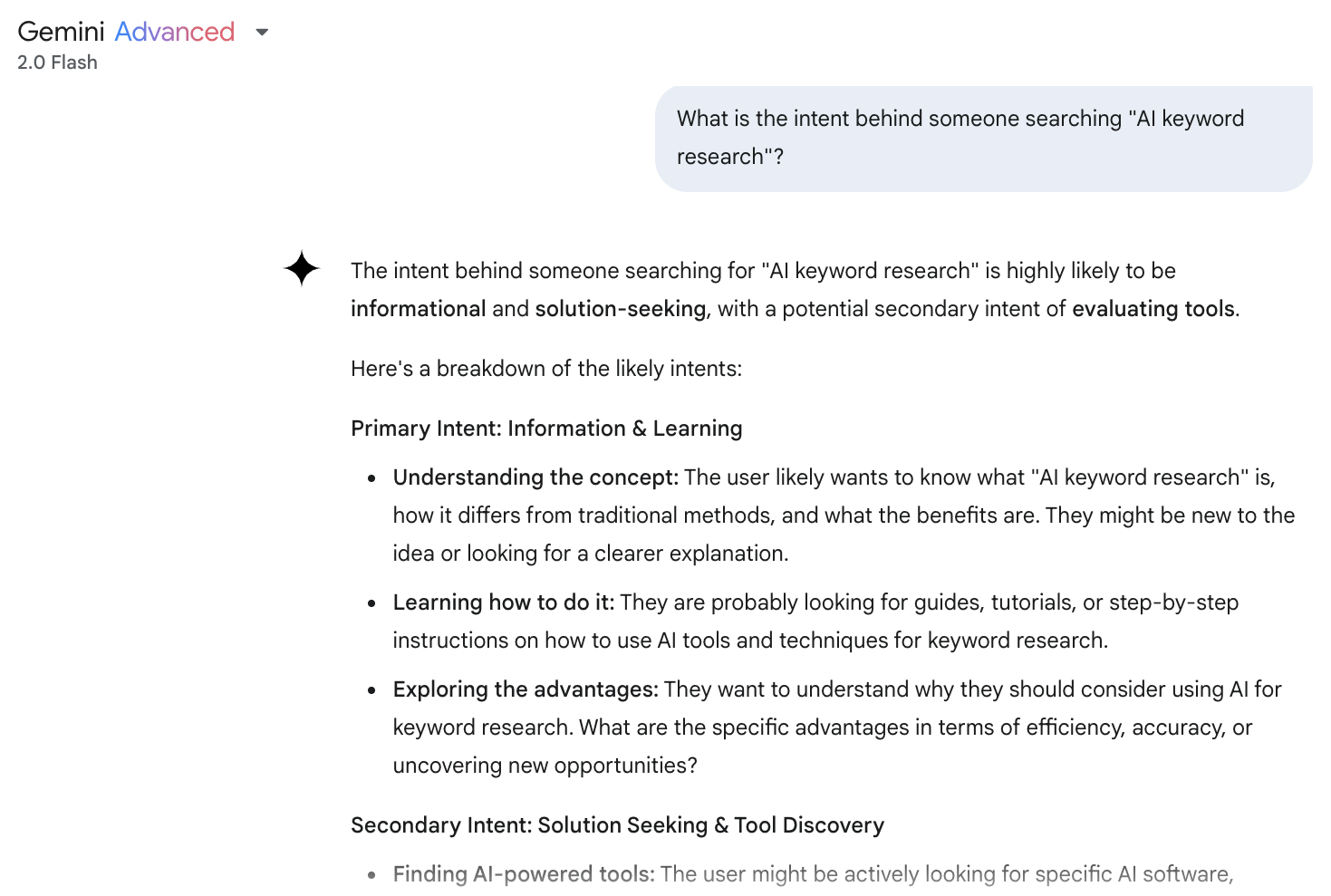
Confusion
When I asked confusion to give key words ideas around AI keyword surveys, the tool shared a list of headline ideas rather than keywords.
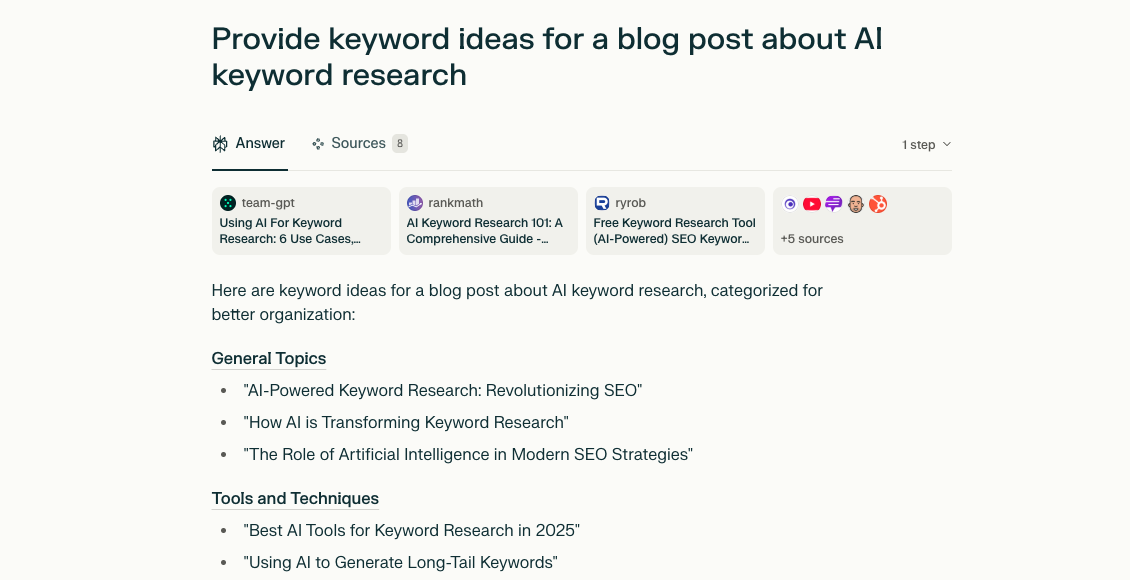
But AI -Chatboten gave some good ideas when I managed the prompt.
An advantage of confusion is that by default it provides a list of web sources.
Seeing these sources can provide some useful insight into competing content. Although it is better to review the top -ranked results on Google’s SERP if this is where you want to rank.
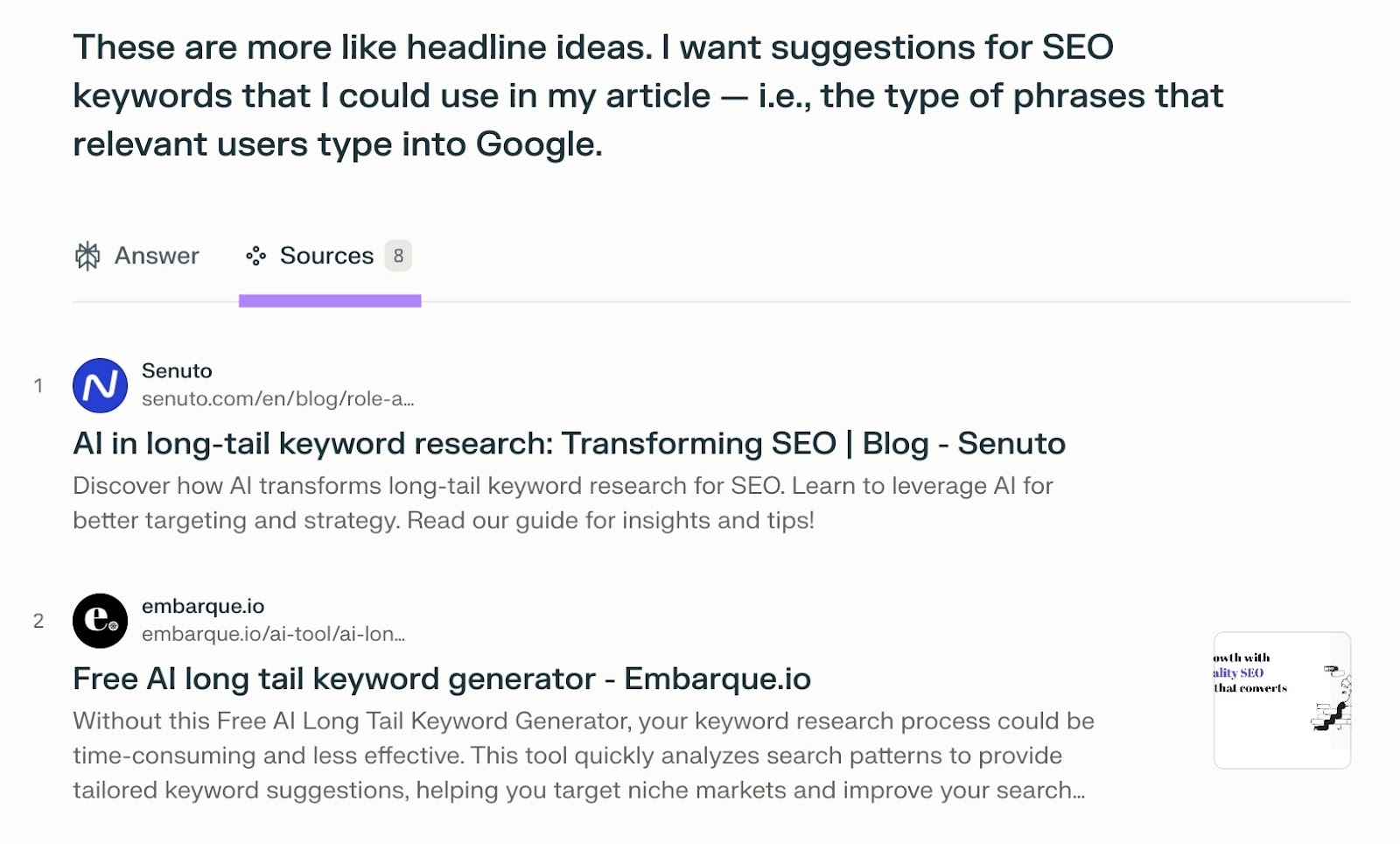
Copilot
Microsoft’s Copilot Chatbot generated a list of 15 key words as I asked for ideas relating to AI keyword research. And although some key words were a little wide, they were all very relevant.
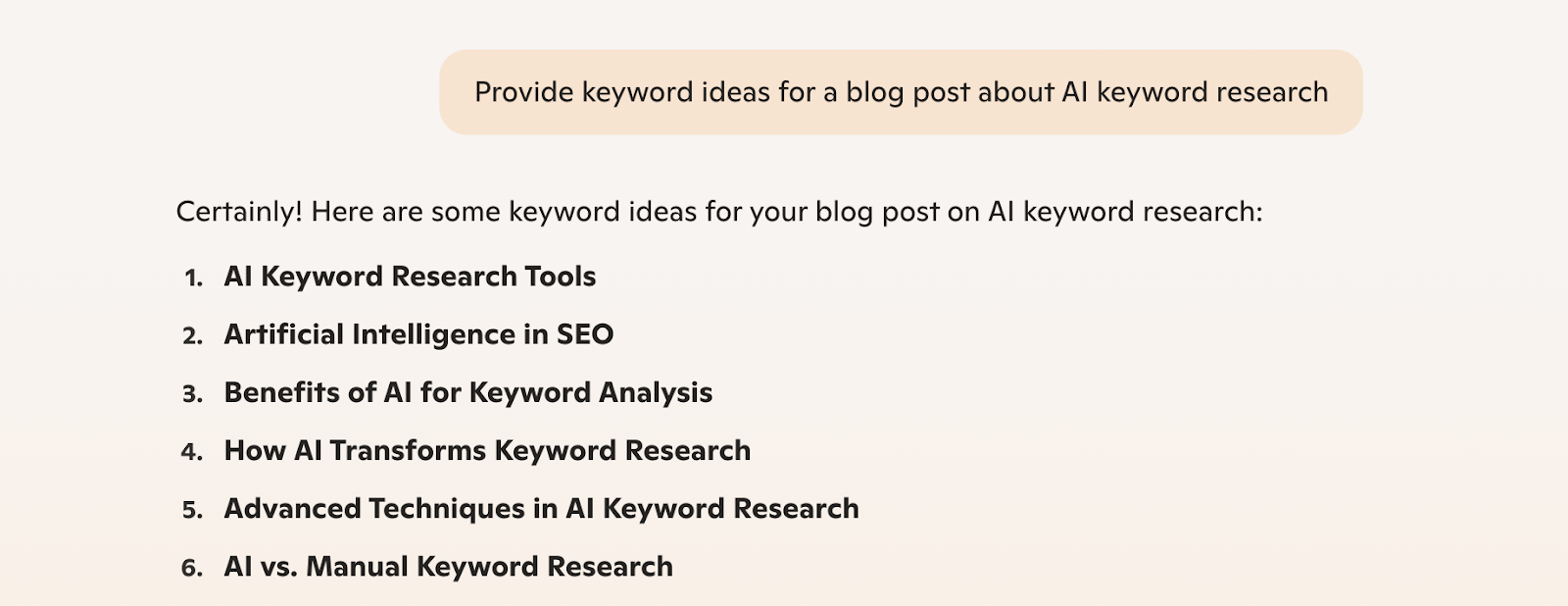
Copilot also provided a good insight into search intention and suggested follow -up Interns to help me clarify my needs.
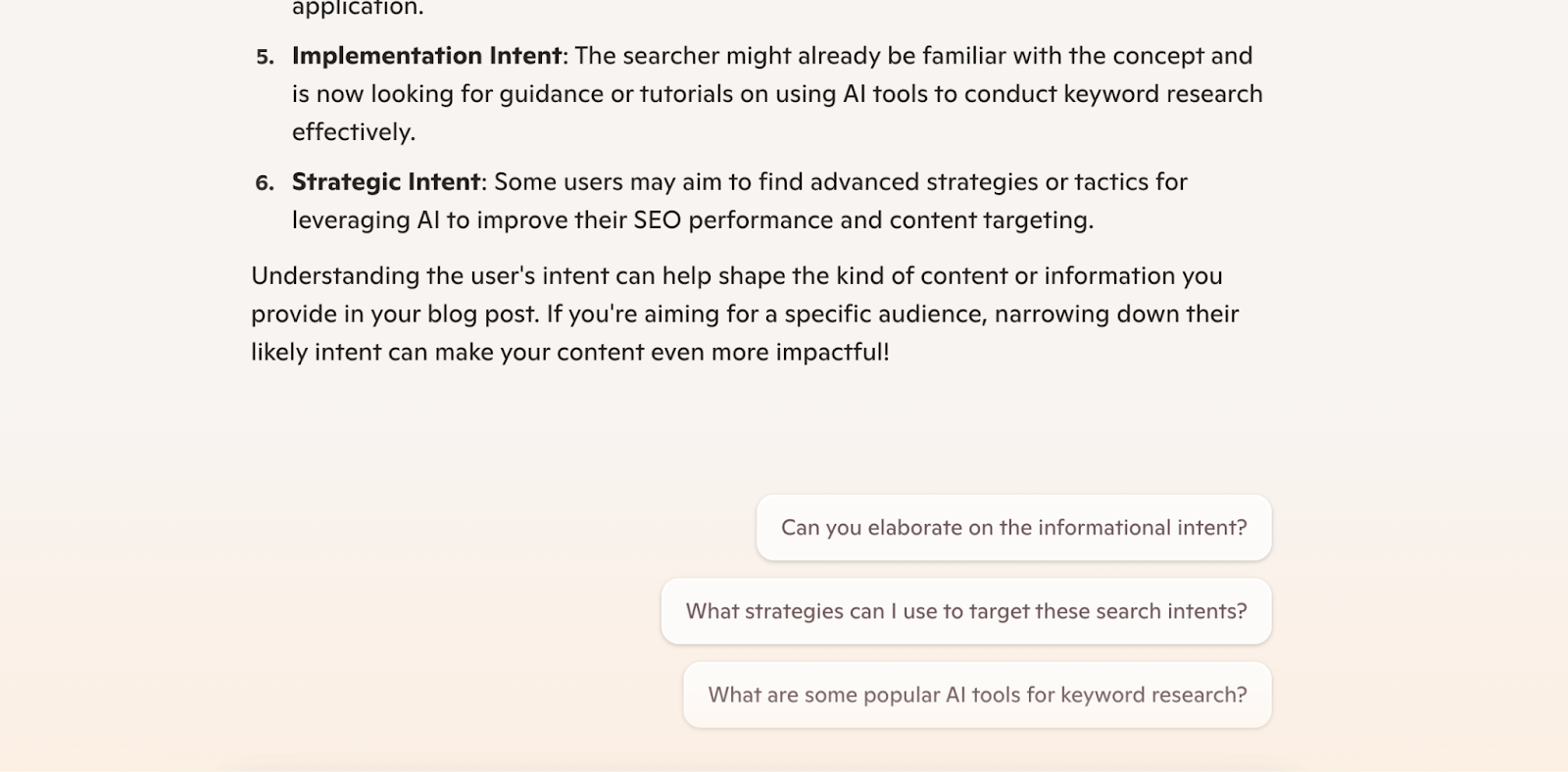
AI -Chatbots are good for brainstorming keyword ideas and search intention analysis, but I recommend using a traditional keyword survey tool to validate the keywords you find.
Validation of a key word means to check if it is worth targeting based on SEO data in the real world.
For example, Semrush’s keyword overview tool reveals key word measurements including:
|
Metric |
Description |
How it is calculated |
|
Search volume |
The average number of searches by the key word each month |
Real search engine data and machine learning algorithms |
|
Trend |
How actual search volumes have fluctuated in the past year |
Real search engine data and machine learning algorithms |
|
Personal keyword problems |
A measure of how hard it will be for your domain to rank in Google’s top 10 organic results |
AI-algorithm that is considering various factors relating to your domain and top-ranked domains |
|
Intention |
Type (s) for search intention behind the key word |
Machine-Learning-algorithm that contemplates keyword terminology and SERP functions shown in search results |
Since I used keyword overview to analyze 10 primary keywords suggested by Chatgpt, only two keywords had registered search volume. This does not necessarily mean that the other keywords receive zero searches, but it indicates that their popularity is very low.
Keyword overview also shows that the two key words with registered search volume have commercial intention and should be relatively easy for my domain to rank a lot for.
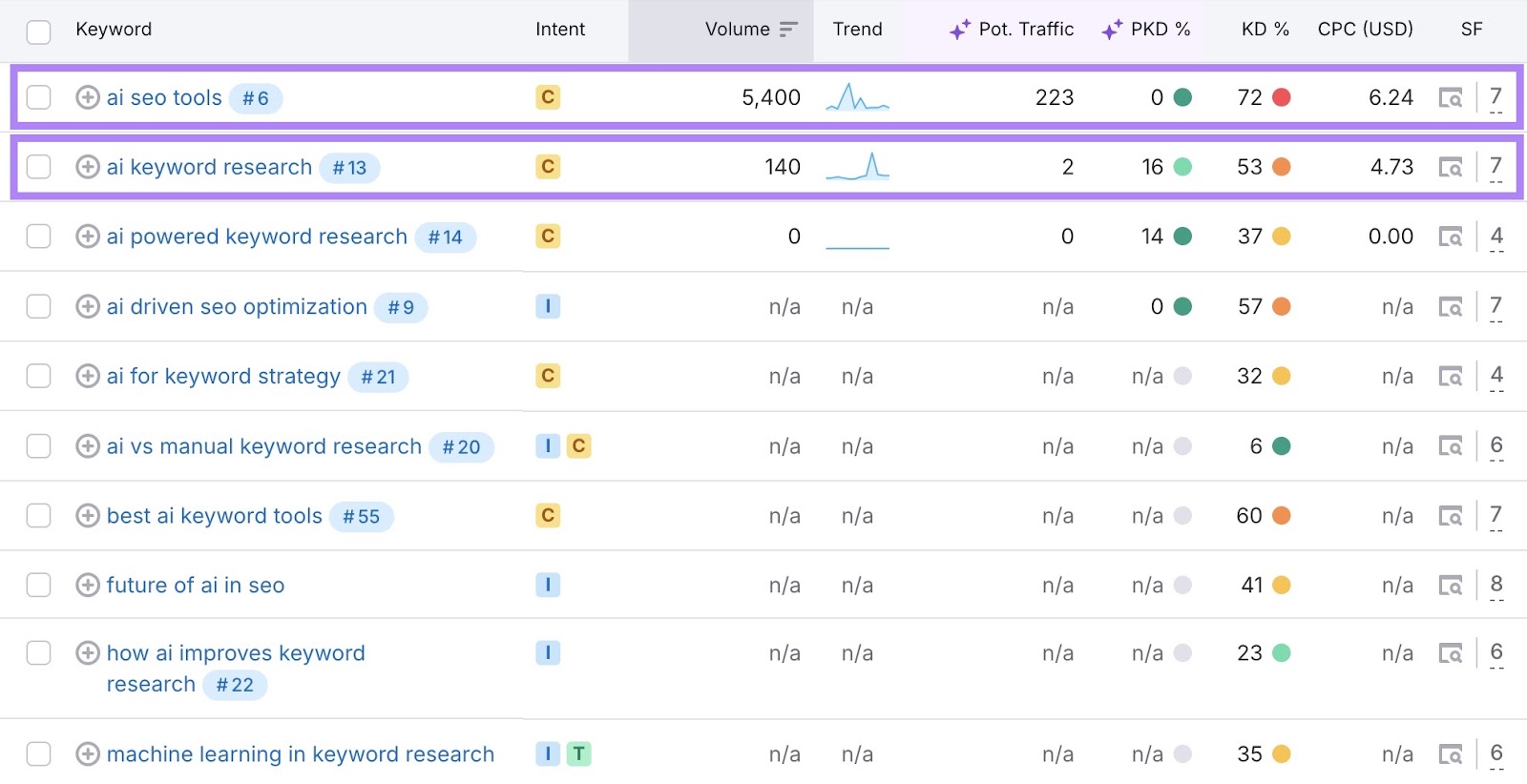
When I analyze a specific keyword in keyword overview I can:
- See additional measurements such as my potential ranking position
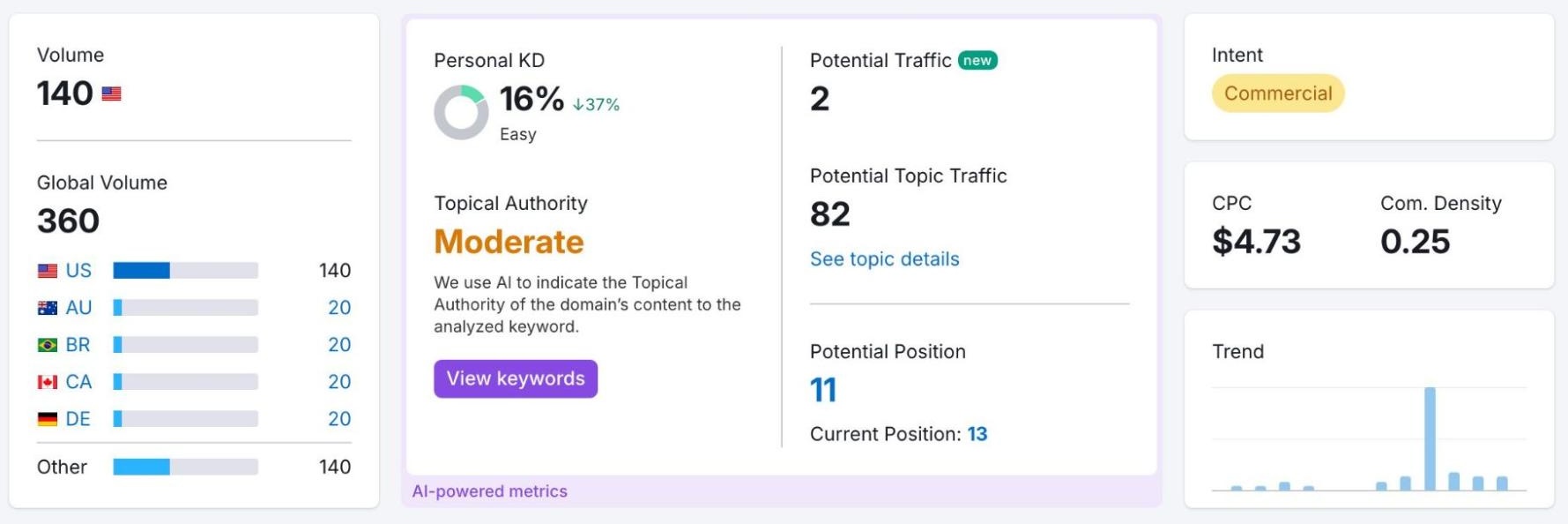
- Collect more keyword ideas and check their associated measurements
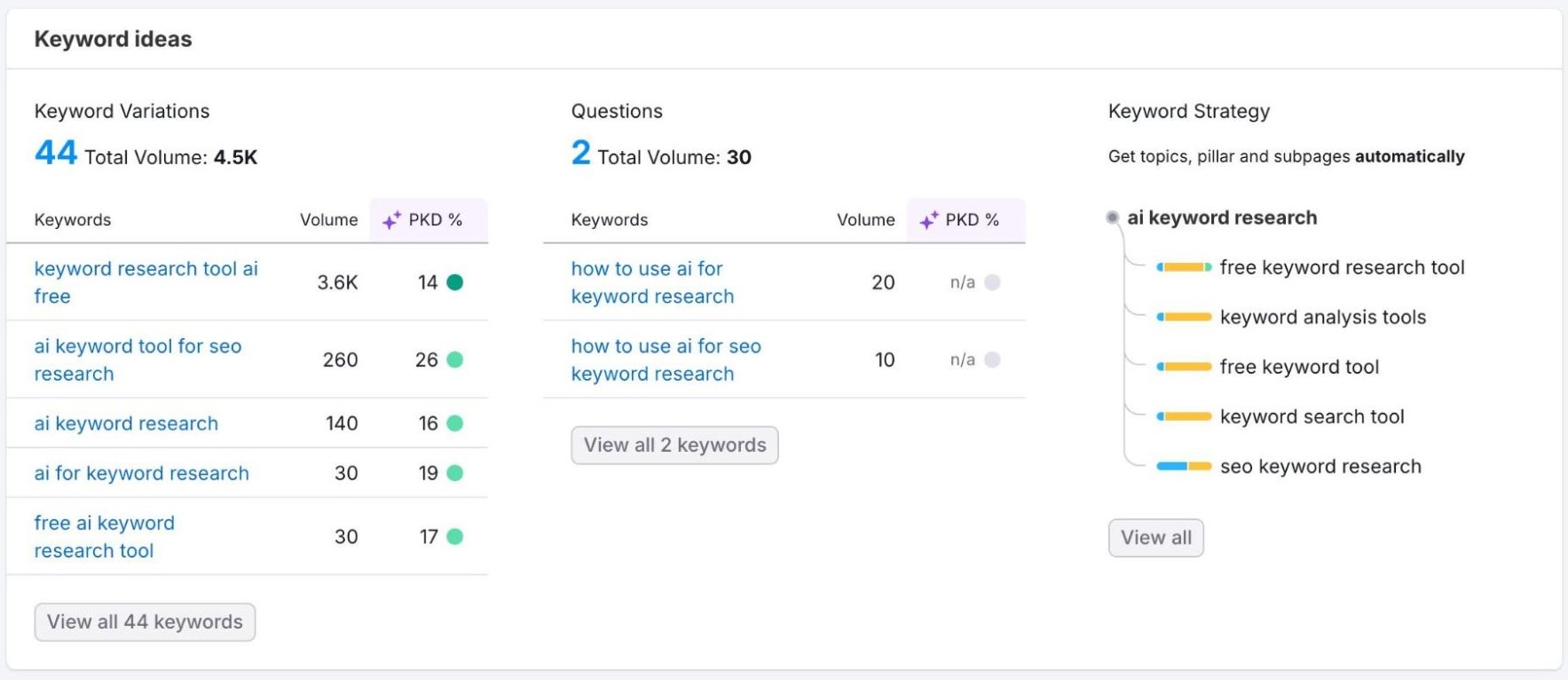
- Analyze Google Serp to see what kind of results work well
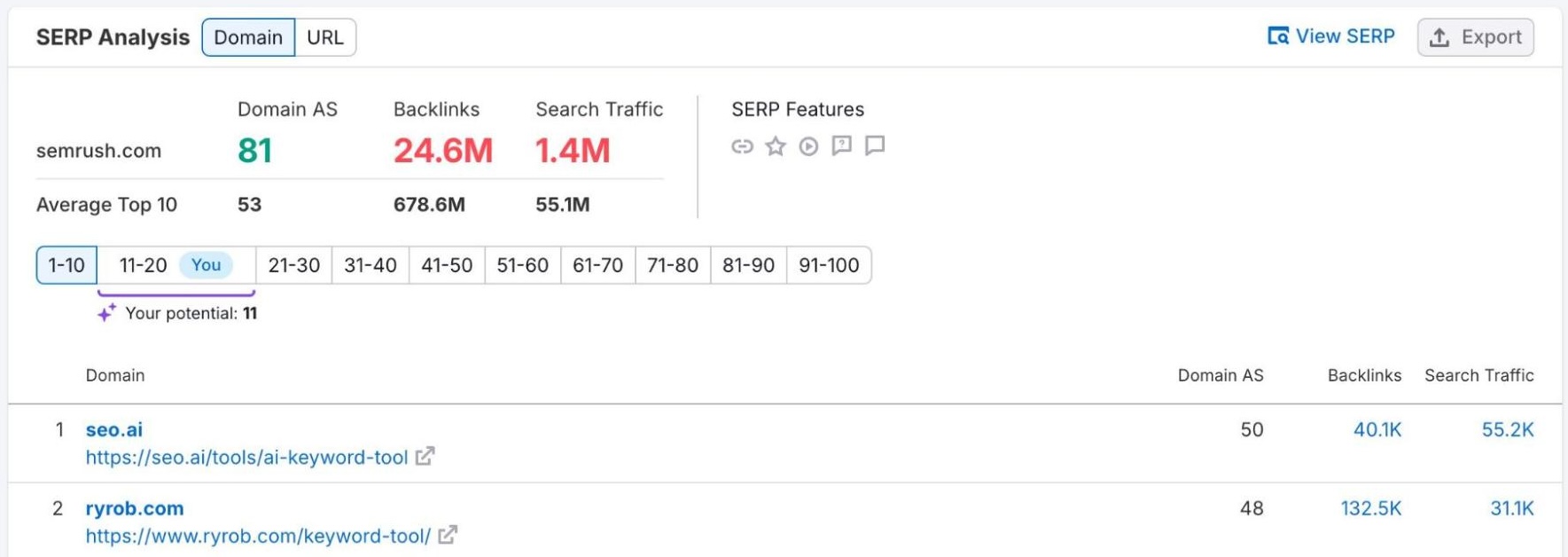
These kinds of insights help you identify keywords that are likely to drive good results to your site.
Start your free trial to test key word overview for yourself.
